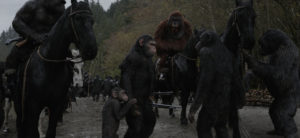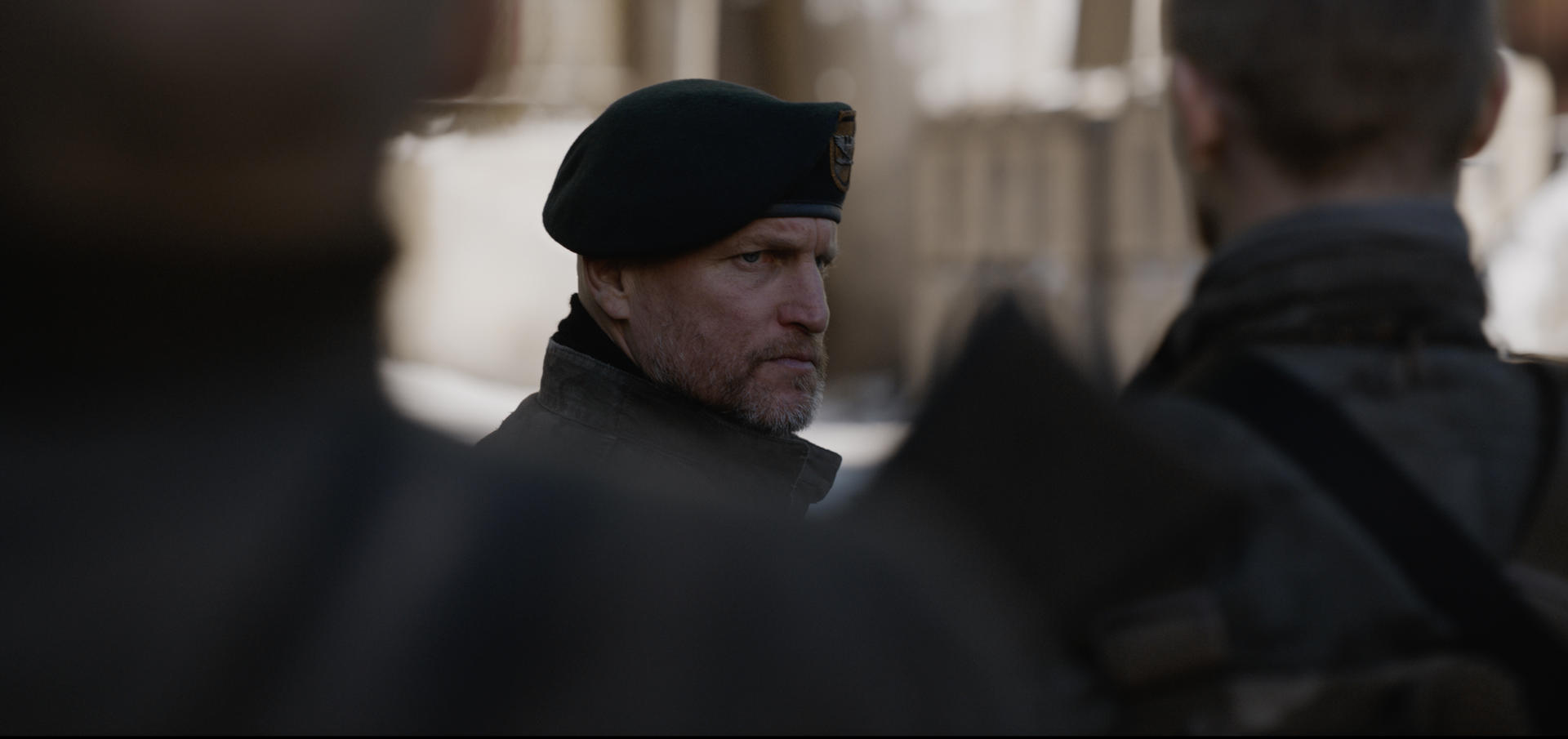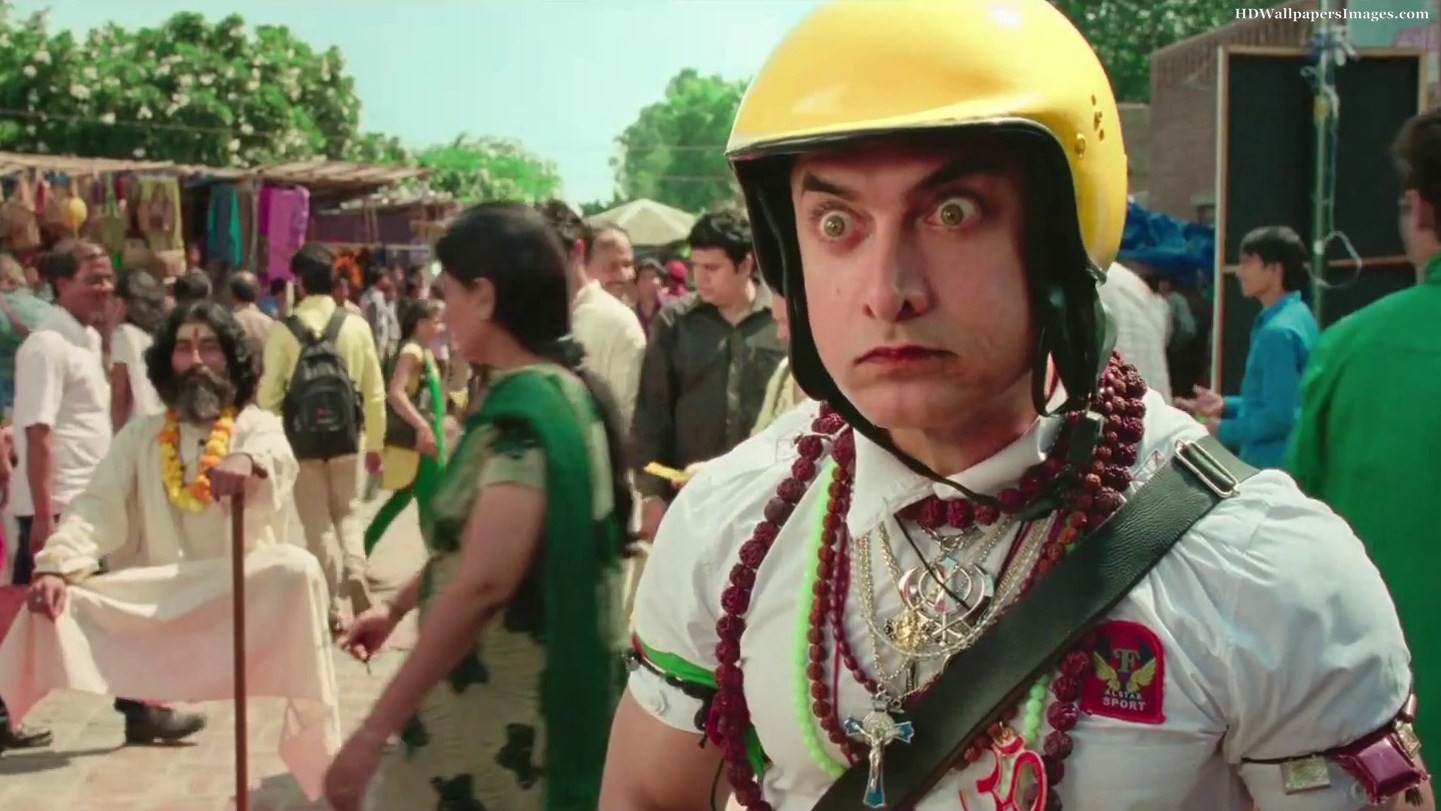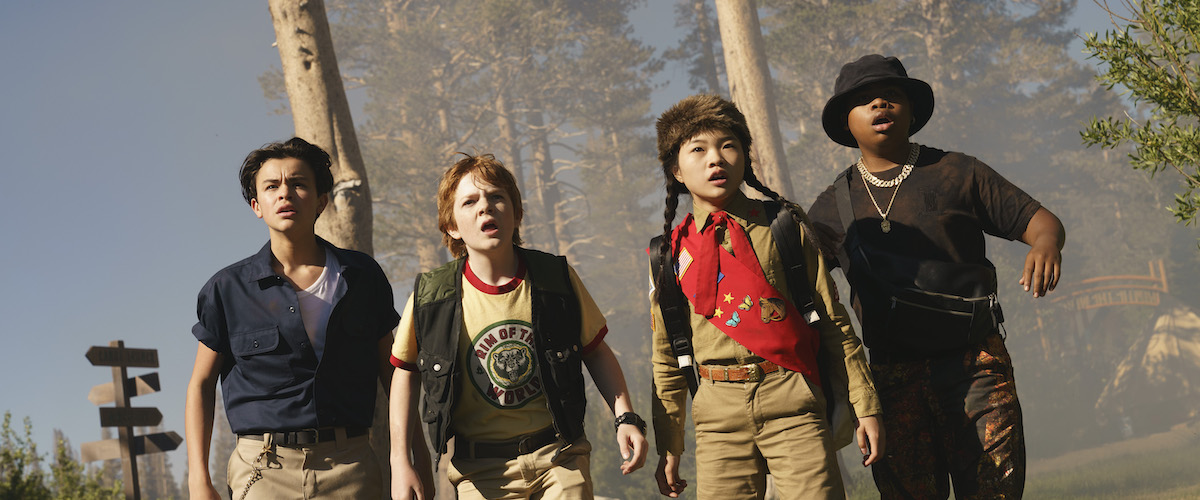It’s about time they made a Planet of the Apes film that works. And it only took four decades, eight tries, and a healthy dose of Roddy McGollum. Is there some sort of cyclical roller coaster going on here? Maybe by the 45th film, they’ll really get it together – of course, maybe by then apes will be doing the filming and the series will be entitled “Planet of the Humans.” How much more surreal could it be than our current reality?
One of the problems with the current Apes franchise is, much like Pirates of the Caribbean, the films aren’t good enough to keep in your memory, so I really don’t recall how the last film ended. War for the Planet of the Apes didn’t need me to. It jumps right in with the action – human soldiers advancing on the chimpanzee compound. There’s something both awful and fitting about major species war in the post-apocalypse. The world has done blowed itself up, but the few hundred sentient beings left alive on the planet are still happy to kill each other. Whaddaya say? Haters gonna hate, huh?
Not unlike the early conflict in Wonder Woman, the more primitively armed foe living in Paradise routs their assailant. But Caesar (Andy Serkis – how does one describe Andy Serkis’ work here? It’s Andy speaking and Andy acting and Andy moving, yet on screen it’s none of these things exactly) … anyhoo, Caesar proves merciful, sending the living soldiers back to The Colonel (Woody Harrelson) with a message – leave us be, and the war can end here. Of course, nobody tells The Colonel where to stick his chicken and special spices, so he returns that night and makes a salad of Caesar’s wife and son. Oh, it is on. It is on like, dare I say? Yes. It is on like Donkey Kong.
Speaking of donkeys, this is the derogatory term for the sell-out gorillas siding with the human soldiers. This dynamic is one of the fascinating, and, quite frankly, ironically realistic subplots of the war between humans and apes. Political self-interest sell-outs exist everywhere. And having introduced the idea, the movie sets up a heirachry in what we see later as ape slave labor camps – mostly chimps lift the rocks while a donkey wields the whip. Some apes are definitely more equal than others.
Another winning subplot is the civil war between human groups. A highly infectious disease has riddled the human population; the infected it hasn’t killed outright revert to a more primitive, child-like, speechless cognizance. Woody and the boys have even less tolerance for dumbstruck humans than apes. This is how you construct the point A to point B route – you don’t spell it out like in Sith Sandwich; you let the viewer get there themselves. How do you get from War for the Planet of the Apes to the original Planet of the Apes? Well at some point, the surviving humans must have lost the power of speech. This is where.
If there’s any one fault to War of the Planet of the Apes, it’s the comic relief. Often comic relief is a welcome facet of serious movies. With all the potential racial overtones to dance around, the Planet of the Apes genre tends to be somber as a funeral, so this iteration decided to give us an error-prone foil, a Mr. Bubbles among General Pattons. It doesn’t work. We meet the jacket-wearing klutz monkey simply known as Bad Ape (Steve Zahn) hanging out at a ski resort. You’re gonna be waiting a while for that chair lift to return, buddy. But that doesn’t stop zany slapstick from happening. It couldn’t have been more out-of-place if it were actual human Steve Zahn in a monkey costume.
foil, a Mr. Bubbles among General Pattons. It doesn’t work. We meet the jacket-wearing klutz monkey simply known as Bad Ape (Steve Zahn) hanging out at a ski resort. You’re gonna be waiting a while for that chair lift to return, buddy. But that doesn’t stop zany slapstick from happening. It couldn’t have been more out-of-place if it were actual human Steve Zahn in a monkey costume.
At the hint of comedy, I’m struck by exactly how many common genre boxes this film tried to capture: action, adventure, drama, sci-fi, war. If you just had a love story between Nicolas Cage and a chimpanzee, you’d cover three more (romance, FYNC, horror). Whatever genre decides to claim it, this is the best Apes film of the modern run which, in turn, makes this the best Apes film since Charlton Heston’s Beach Blanket Bonzo. Careful there or I might just look forward to the next installment.
Apes by themselves? Hey, the more the merrier
Yet in constant conflict with a human terrier
The Colonel makes war
His judgement? Poor
The dominant species gets a whole lot harrier
Rated PG-13, 140 Minutes
D: Matt Reeves
W: Mark Bomback & Matt Reeves
Genre: This set isn’t big enough for the two of us …
Type of person most likely to enjoy this film: Higher primates
Type of person least likely to enjoy this film: Donkeys



